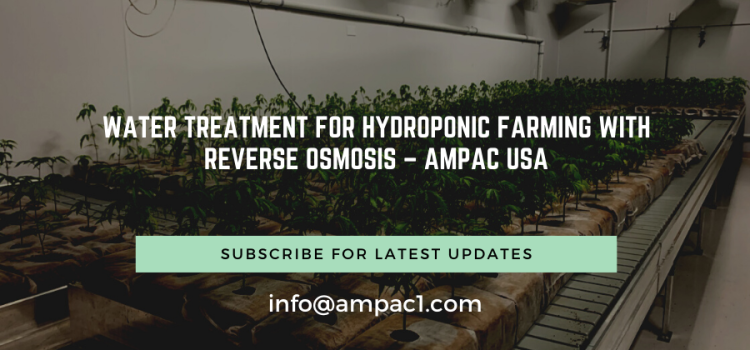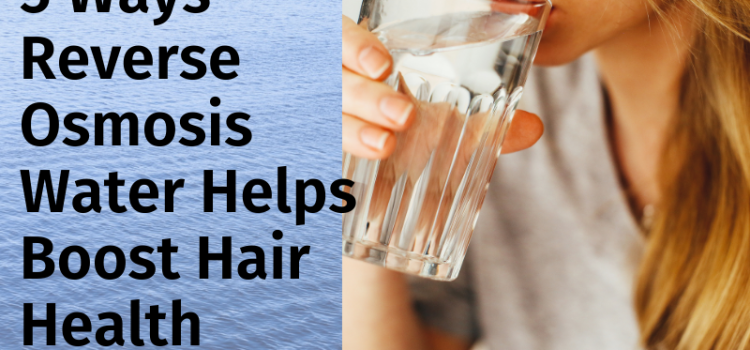Agriculture and Farming have been around for ages and in the past decade, Reverse Osmosis has been a huge contributor in controlled water quality availability with decreased wastewater concentrate. But as the world progresses, the technology is now focusing on hydroponics farming, a form of agriculture where plants receive exactly the amount of nutrition, they need not from the soil but from the water concentrate they are kept in. The hydroponics industry is said to have a compound annual market growth of 11.68% by 2022. Considering how RO technology has assisted every industry for water treatment, it was only a matter of time when it was to be considered for the most important task in hydroponic farming.
Importance Of Water Quality
Because in this kind of gardening, plants are not directly in contact with the soil for their constant supply of nutrients, it is essential that the water that does the job has the exact amount of nutrients. Less amount can lead to inhibition of growth while too much may be potentially toxic. Apart from just the nutrient point, the water quality has to be closely monitored for two major aspects.
- Electrical Conductivity:
The Hydroponic solutions are made by dissolving mineral salts in water and its strength is measured by its electrical conductivity. Higher EC values mean the salt concentrations are higher. EC values vary according to every plant type. Different plant types require different nutrients and salt concentrations. And different personalized solutions will have different EC values as the salts turn into ions in the concentrate. - pH Levels:
pH levels have a significant impact on the growth of plants grown hydroponically. The plants absorb minerals through their roots and their ability to do so depends on the pH of the solution they are grown in. Usually, acidic solutions promote absorption of aluminum, hydrogen, and manganese but too much can be toxic for the plant. Likewise, lower pH does not allow easy absorption of calcium and magnesium causing deficiencies. More Alkalinity causes absorption of molybdenum and macronutrients but too much can cause deficiency of Phosphorus, Copper, Zinc, Iron, and Cobalt.
Industrial Reverse Osmosis For Hydroponic Farming
Water quality, therefore, is one of the most important aspects of growing plants hydroponically along with the controlled environment. The ideal water solution can be created in house with the option of reverse osmosis. Industrial reverse osmosis systems allow business owners to create customized water quality solutions for large scale hydroponic farming.
Varying between the capacities of 10,000 to 20,000 GPD, these industrial systems are:
- Customized based on the individual plant types to produce water concentrate needed with the ideal pH balance and EC value.
- Available with standard features of Multimedia KDF Pre-Filter, Pressure Vessels, Membrane Elements, Ultraviolet Sterilizer, Post-Carbon Filter and more.
- Have optional features like an Antiscalant Dosing System, Chlorine Dosing System, Smart On-Demand supply pump to increase feed water pressure for better control over the system and the output.
- It is driven by an international standard Reverse Osmosis System for constant quality.
- Comes in a fully automated turnkey system built on powder-coated welded aluminum skid with a diamond plate base.
These industrial systems are built to treat two kinds of source water that your business may use with reverse osmosis. The provisioning systems for hydroponic farming can be sourced from either municipal lines or nearby groundwater reservoirs. For groundwater, Pre-Treatment reduces the TDS concentration and removes sediment, microorganisms, and suspended solids. Municipal supplies call for an additional need for chlorine removal as it is used majorly for treating water and microorganisms in case of plumbing breach.
Want to know more about water treatment systems for your hydroponic farm? Contact AMPAC USA today!









